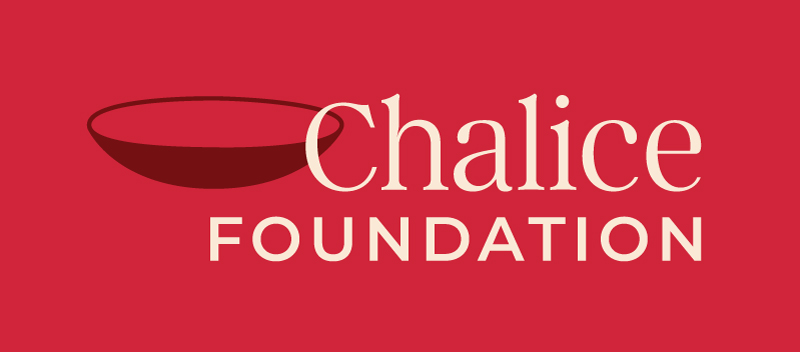Lately I’ve been enjoying a series on instagram called Roe v Bros. Named after the repealed Roe V Wade Supreme Court decision in the US protecting the right to abortion, “the game show where we find out how much men know about women’s bodies.”
Of course, many of the questions asked are about periods such as, “What does PMS stand for?”, “Can you pee with a tampon in?”, “Why are there different sized tampons?”, “What is a period?” and “How much blood do women lose on their period?”
Though this is a great way to promote voting in a post-Roe America, it is also so important for us to consider how much men do know about women’s bodies, specifically periods. I sent one of these videos to a few of my male friends and one of them said, “I would struggle to answer some of those questions. These are things I know nothing about.”
How much do men know about periods?
Turns out, not much. Many men on the show insisted you couldn’t pee with a tampon in, different tampon sizes are for “different sized vaginal cavities” and then didn’t really know what a period is and that women don’t lose a gallon of blood every cycle.
In 2021, period product brand INTIMINA surveyed 1,091 US men on how much they know about menstruation. The survey found that one in 10 men (14%) have never had a conversation with a woman about periods, a quarter believe you have to remove a tampon to urinate and 11% of men still believe that a woman can absolutely not get pregnant whilst on her period.
Even more illuminating, the survey asked men to answer true or false on misconceptions about periods, with 4% of men reported believing tampons and periods can get lost in the vagina, and nearly one in 10 (8%) believe that menstruation attracts sharks in the sea.
Why don’t men talk to menstruators about periods?
The survey also asked respondents to imagine having a teenage daughter and if they would be comfortable talking to her about menstruation. 11% said they would not feel comfortable having that conversation, and 33% shared they would prefer to have a woman do it.
The more that menstruation is treated like something that is only for those who have periods, the more it is isolated as a “woman’s issue” which then easily becomes synonymous with something that is not important, when actually, menstruation is something that concerns everyone in society and everyone can have a positive role in ensuring the menstrual taboo is smashed by talking and learning about something that is common and natural. Misconceptions such as women attracting sharks just adds to a situation where periods are treated as a dramatic superhuman phenomena (it is, but not in the attracting sharks way) which is also not important enough to learn anything about.
Education is needed
On a positive note, 78% of respondents felt it was important to educate boys about periods and the menstrual cycle. Researchers Anja Tolonen and Dani Stoilova, whose case study in Tanzania is listed below advise, “as the first step to normalizing menstruation, we recommend convincing boys and men to join the conversation about periods”. There are some positive case studies which evidence the positive effects of menstrual education including education on the menstrual taboo and stigma on boys:
- Boys in Western Cape York in Far North Queensland by the Dignity Everyday project responded positively to menstrual education;
- A case study on menstrual knowledge and teasing girls about periods amongst boys in Tanzania found that boys had the same level of knowledge about menstruation as girls but social norms and stigma like “having restrictions at home for menstruating women and having friends that tease” were stronger indicators for teasing. This is learnt behaviour that can be unlearnt.
- Geena Dunne, founder of The Cova Project which supplies menstrual cups and education to girls to communities in African countries spoke with us about the importance of engaging men in their work, “we do try our best to involve men in the process because it is a cultural taboo that needs to be tackled by the entire community and it can’t be something secret that we’re giving womxn and excluding men from the conversation, that won’t work.”
Dads have a unique opportunity to play a positive role in supporting the girls and women in their lives
In a previous blog for The Leak, Chalice Foundation Founder Jane Bennett reflected on her menstrual education work, “I have had loads of conversations and run multiple workshops with dads who want to better understand, and be an active support, as their daughters mature through puberty and adolescence. While mothers have an obvious and important role to play in teaching girls about periods (more on that another time) thoughtful engagement and help from fathers makes a significant and positive difference to girls confidence and body image, as they learn to happily manage periods, and develop an engaged and healthy attitude to their menstrual cycle. This in turn has a major impact on girls’ social, emotional and physical wellbeing.”
Read Jane’s blog, “10 Tips for Dads on how to create a period friendly home.”
Here is a great 101 on periods on the Intinima website, it says it is for Dads but really it’s for any man who knows a menstruator (aka 100% of men).
How great would it be if a random questioner could walk around the city and ask men what they know about women’s bodies and the answer be “a lot!”?

Casimira Melican
Casimira Melican is a Policy and Programs Officer at the Office for Women (Victorian Government) and has been co-editing The Leak with Jane Bennett since April 2020. Casimira has a Masters in International Relations from the University of Melbourne with a focus on policy, human rights and international governance. In 2016, Casimira co-wrote the VWT’s menstrual and menopause workplace wellbeing policy, co-authored Ourselves at Work: Creating positive menstrual culture in your workplace and led advocacy on the policy until June 2021 in her role as Manager of About Bloody Time and Research and Policy Officer at VWT. Casimira is passionate about the ability for policy and research to have real world impact and empower women, trans, non-binary and gender diverse individuals within our society.


